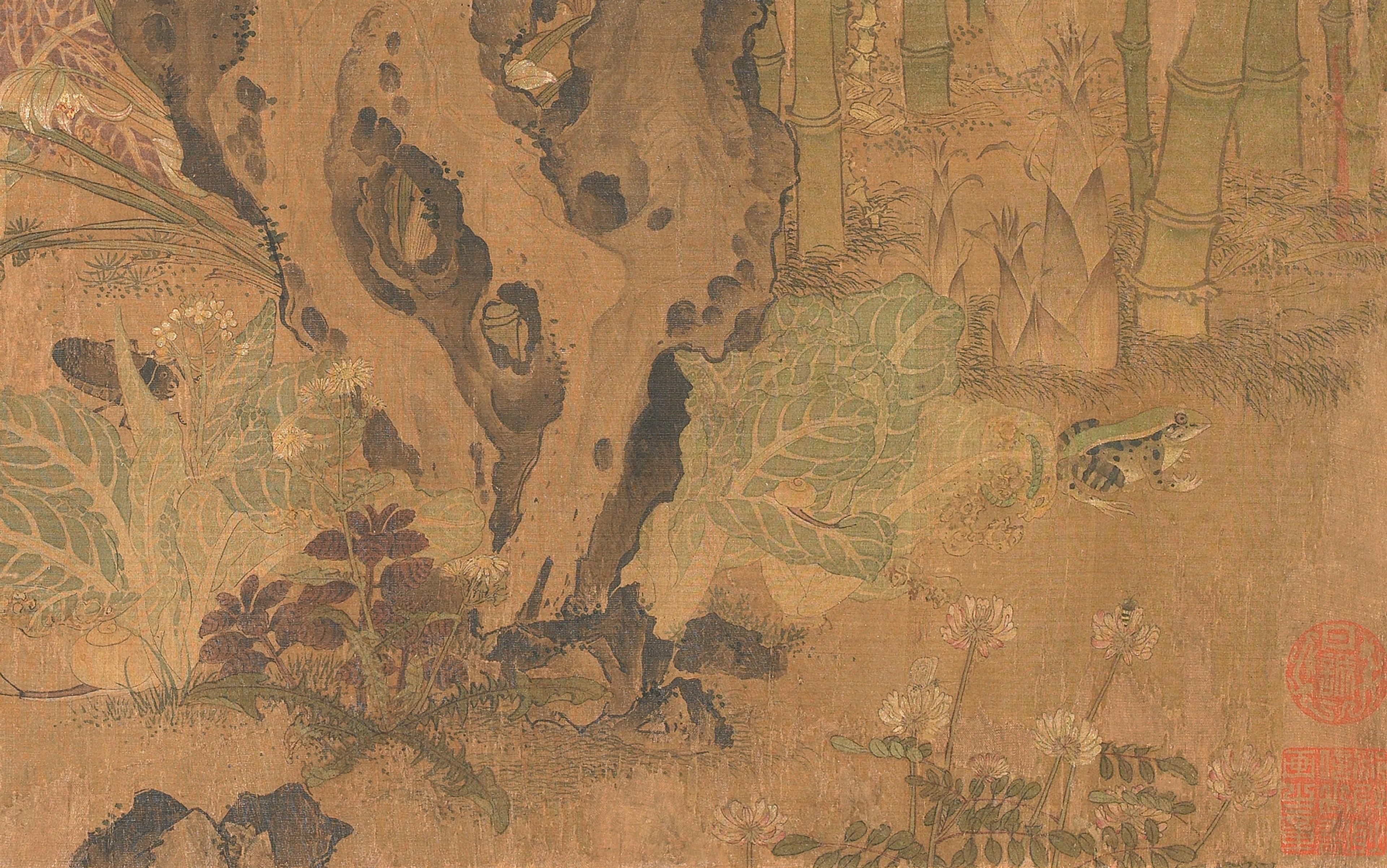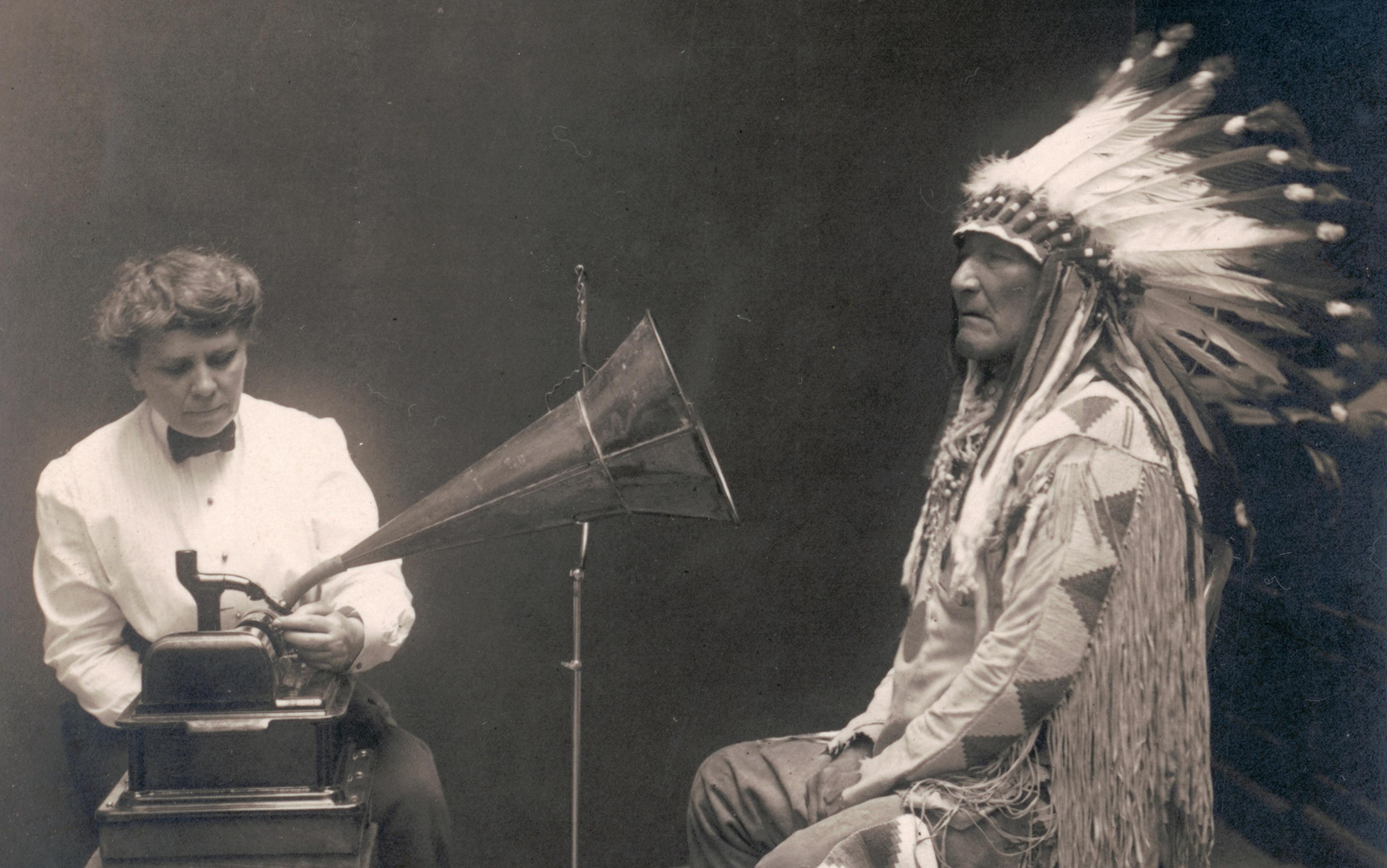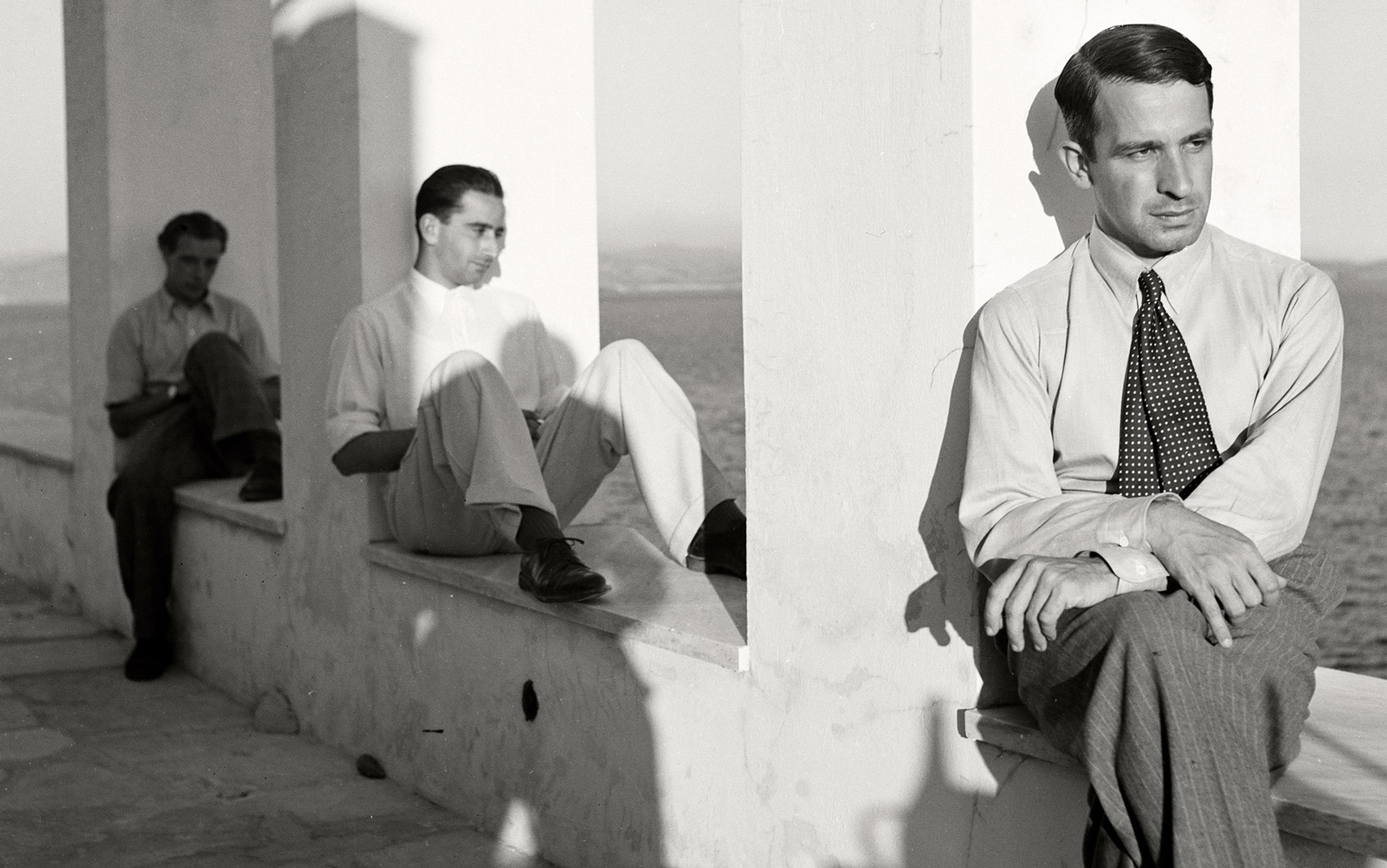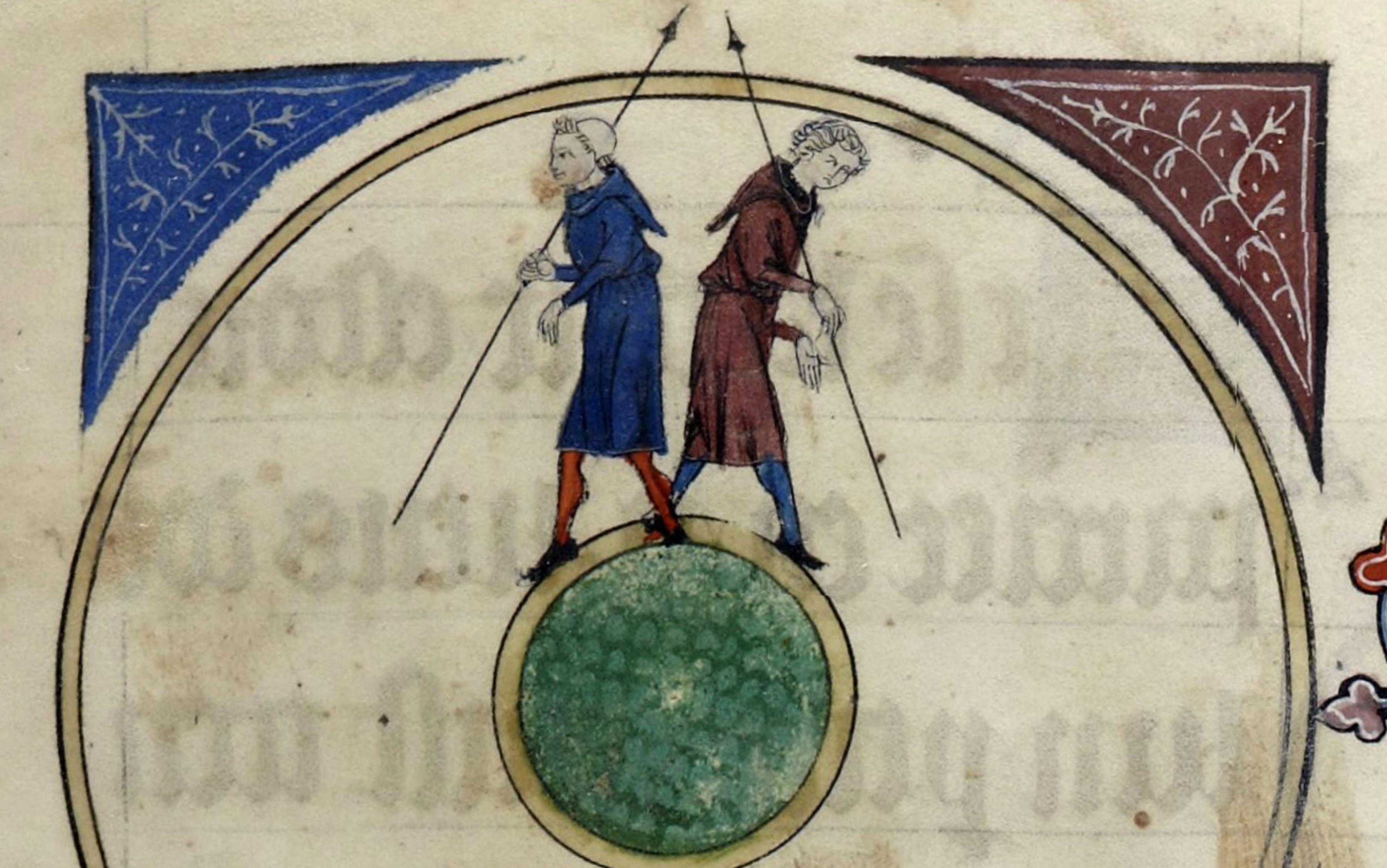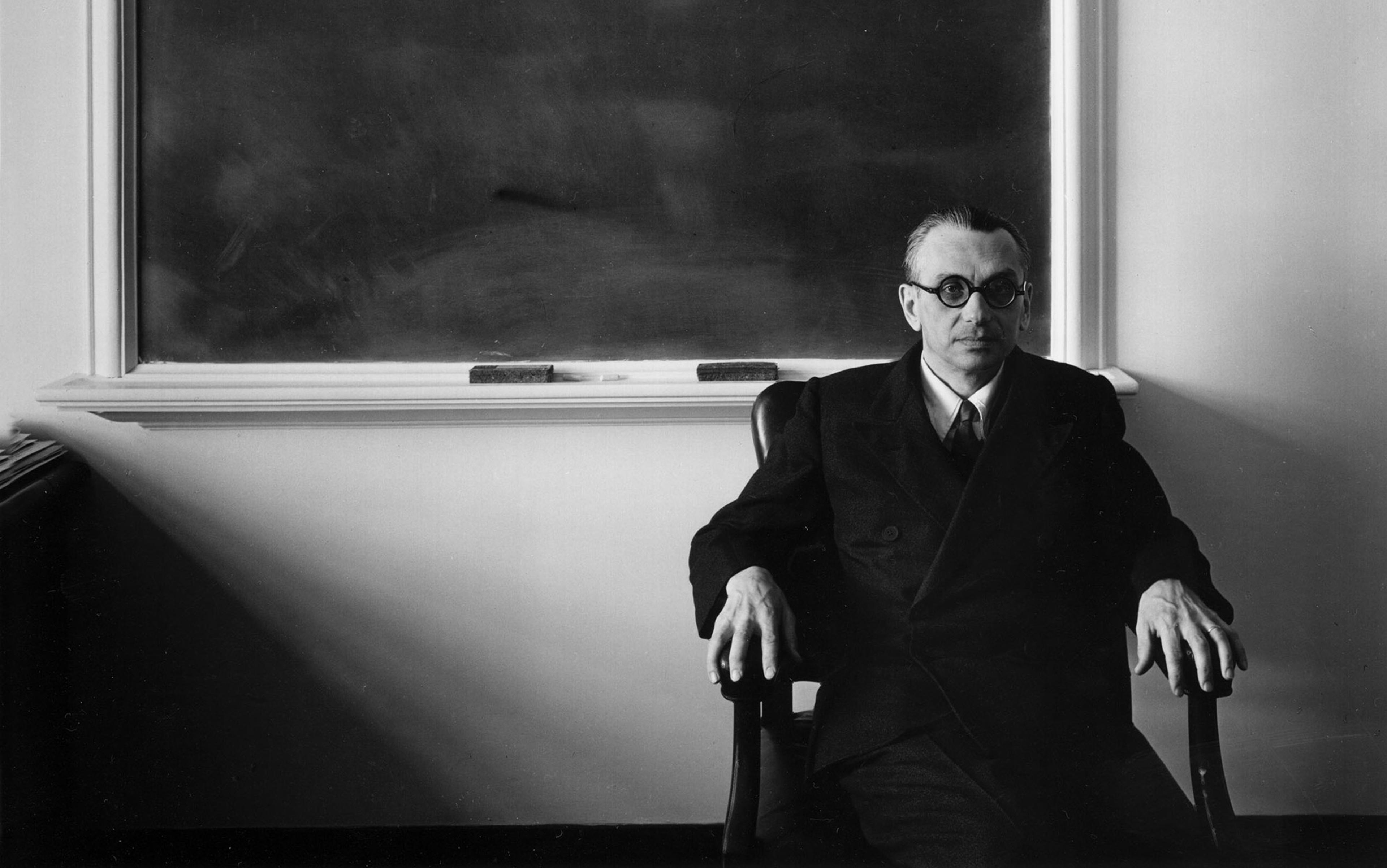There is a well-known story in the Zhuangzi, the ‘Fable of a Frog in the Well’. It is a conversation between a well frog and a sea turtle. The frog brags about its own comfortable abode and way of life in a caved-in well to a visiting sea turtle. When the turtle describes for the frog what the sea is like, the frog is completely dumbfounded, not knowing what to make of the turtle’s description. This is a tale about the limited world of the well for the frog in contrast with the limitless world of the sea for the turtle. If the Allegory of the Cave in Plato’s Republic has shaped Western understandings of the nature of knowledge, truth, reality, ethics and politics, the ‘Fable of a Frog in the Well’ has played a similar role in Chinese approaches to these subjects. Whereas illusion/reality is the primary setup in the cave, it is limitedness/limitlessness in the well. Limitedness or smallness versus limitlessness or capaciousness is a foundational paradigm and metaphor in Chinese philosophical reasoning.
Zhuangzi mocked the Confucians and the Mohists as being like frogs in a well while at the same time extolling the virtues of roaming in the world of limitlessness, like the sea. Importantly, unlike Plato’s portrayal of the people shackled in the cave, Zhuangzi’s critique of the frog is not that its world is unreal but rather that its perspective is limited. For Zhuangzi, the Confucians and the Mohists were limited by their narrowly moralistic perspectives on everything.
The Confucians and the Mohists were the dominant players in the early Chinese moral-political debate about how to build an orderly and fulfilling world amid increasing chaos and violence in the Warring States period (c475-221 BCE). That mainstream debate was a contestation between two conceptions of moral obligation, humaneness and justice. Humaneness is a partialist conception of moral obligation embraced by the Confucians, and justice is an impartialist conception advocated by the Mohists and others. All the mainstream philosophers were active participants in the debate about how the state should be made to embody the principle of humaneness or justice, except Zhuangzi.
Zhuangzi did not accept the terms of the mainstream moral-political debate, dismissing the parameters of humaneness and justice as confining and even harmful. Instead, he was a strong advocate for personal freedom, expansive in its imagination but deeply ambivalent about the state. At its core, the Zhuangist project of personal freedom was a challenge to the centrality of ritual norms in the Confucian construction of the lifeworld, the constricting well in the fable. Ritual was a system of rules, codes and conventions that regulated every aspect of human life in early China, from sacred funeral rituals to mundane daily routines, from the solemn state ritual of sacrifice to heaven, to the ordinary personal interactions. It would eventually become a marker that distinguished the ‘civilised’ people who abided by those rituals from the ‘barbarians’ who did not. Zhuangist musings about personal freedom had to negotiate the boundaries and rules set by the ubiquitous ritual.
Zhuangist freedom operates in two kinds of space: inside and outside the lifeworld constituted by ritual. The lifeworld encompasses both physical and normative spaces. As shown by the sea turtle and its world of limitlessness in the fable, roaming outside the lifeworld (fangwai) is the paradigmatic Zhuangist freedom. Expressions of fangwai roaming are ubiquitous in the text: eg, roaming between heaven and earth, into the infinite, beyond the four seas, beyond the dust and grime, and so on.
The context within which the term fangwai appears is rather instructive. Confucius asks a disciple, Zi Gong, to enquire about the funeral arrangement for a Master Sanghu who has recently died. However, Zi Gong is roundly mocked by Sanghu’s friends. A puzzled Zi Gong turns to Confucius for guidance:
What kinds of people are they? They don’t have any decorum of behaviour, treat the bones of their own bodies as external to themselves, sing with the corpse right next to them with no change in their facial expressions. I don’t know what to call them.
(All translations from the Zhuangzi are my own)
He is clearly disturbed by the extraordinary detachment and apparent uncouthness that Sanghu’s friends display toward his remains. It deeply offends Zi Gong’s Confucian sensitivity toward the ritual arrangement that governs how a funeral ought to be performed. Confucius offers his puzzled disciple an explanation that frames the Zhuangist intellectual project in contrast with Confucius’s own:
They are of the sort who roams outside the lifeworld (fangwai). I am of the kind who roams inside the lifeworld (fangnei). Outside and inside don’t overlap. It was silly of me to send you to mourn.
The Zhuangist minimalist attitude to death contrasts with the Confucian interventionist approach
The two critical terms, fangwai and fangnei, appear within the context of discussing the funeral ritual between the Confucians and the Zhuangists.
Death represents a precarious moment wherein chaos can ensue due to the radical rupture of the lifeworld. However, the Zhuangist attitude toward death cannot be more different from the Confucian one. For the Confucians, ritual responds to death by carefully choreographing a set of rules that can help mourners cope with the devastating loss of a loved one. For example, according to the Book of Rites, a compendium of ritual prescriptions in early China, in order to show respect to the departed, family members should wail for three days, not eat for three days, and not wash hair for three months; sons should mourn for their parents for three years, with detailed prescriptions about when and how to do (or not to do) what during those three years, etc. Funeral ritual is one of the most sacred occasions for the Confucians such that violating its rule is a blasphemy.
However, the Zhuangist attitude toward death breaks all ritual norms forcefully advocated and guarded by the Confucians. For Zhuangzi, the Confucians prescribe a problematic framework to approach life and death that interferes with the ceaseless natural transformations. This sentiment is captured in a story in which a friend of a Mr Lai’s, who is close to death, admonishes Lai’s family for disturbing Lai. The family’s wailing interferes with Lai as he goes through the radical transformation from life to death. The Zhuangist attitude toward a dying loved one is to aid that person as they transition to the yonder world and not to focus on emotional demonstration, or even indulgence at times, of those left behind. The minimalist attitude toward death is in sharp contrast with the Confucian interventionist approach via carefully scripted ritual arrangements. The Zhuangists see themselves as partners of heaven with Dao-attuned heartminds who are not constrained by the ritual norms of the lifeworld. Instead, they are the ones who can roam the sea freely, unlike the Confucians who are confined to the well. This anti-ritualism is the normative and non-physical fangwai space of personal freedom in the Zhuangzi.
There are also many references to fangwai space that is physical in nature: eg, the wilderness at the margin of the lifeworld, the abode for hermits. The ideal(ised) space for Chinese hermits is the natural world or a place close to nature, either the mountains or the rivers. These are common subjects in traditional Chinese landscape paintings. In fact, the Zhuangzi contains the most extensive collection of stories about the lives of hermits, real or imagined, in early China. The story of the old fisherman in the Zhuangzi provides an example of those who live outside the physical space of the lifeworld. It describes an encounter between a hermit (the old fisherman) and Confucius, with the former lecturing the latter about genuineness and critiquing the stifling impact of ritual. Zhuangzi commends the virtues of genuineness, spontaneity and naturalness as expressions of freedom that is untrammelled by rituals. In the fisherman’s rumination, the natural is set up in contrast with ritual in representing different ways in which the world is organised. Genuineness is the expression of the natural, and coercion that of ritual. This is the physical fangwai space of personal freedom that is distinct from, but at times overlaps with, the normative fangwai.
However, there is another expression of personal freedom in the text that explores ways to navigate life within the lifeworld. This is the second kind of roaming, representing the personal freedom that negotiates constraints in the lifeworld (fangnei). It is subtler, but no less compelling. Zhuangzi, through the mouth of Confucius, lays out two ultimate and inescapable constraints in the lifeworld (even for the Zhuangists): destiny and duty. Destiny refers to one’s filial love of one’s parents, and duty means a minister’s service to his lord. This is Zhuangzi’s effort to navigate the lifeworld whose norms are governed by the expected commitment to filial piety and the obligation to serve the state. Interestingly, though, there is very little discussion of filial love in the text, whereas there is significant effort devoted to the topic of serving the state. This points to the thorniness of serving the state, whereas one’s filial love of parents is far less problematic for Zhuangzi.
The celebrated story of the butcher, Cook Ding, offers the most illuminating example of the distinct Zhuangist personal freedom within the lifeworld. Cook Ding is portrayed as performing a fantastic feat of untangling the massively intricate body of an ox. With charming details and poetic flair, the story describes the butcher’s supremely attuned senses and Dao-guided actions when running his chopper through the ox’s body. Every touch and every move of Cook Ding’s is conducted in perfect rhythm as if he was performing some grand ancient ritual, a highly scripted and constrained occasion. His execution is exquisite and precise, hitting all the right notes, while smoothly cutting open the ox’s body without hacking his way through.
He has learned an invaluable lesson on how to nurture life, from a butcher in his art of butchery!
The butcher turns out to be quite a philosopher. He explains to the awestruck Lord Wenhui that he cares more about the Dao than mere skills. (Dao has three technical meanings in the Zhuangzi. First, it refers to an undifferentiated reality that is the origin of the Universe. Second, it portrays an astonishingly effective way of conducting a particular activity, whether governance, various professional crafts, or even nefarious activities such as theft. Third, it hints at a majestic and yet mysteriously elusive super-agent behind extraordinary natural feats and the ultimate source of authenticity and efficacy.) The butcher describes the phases of learning the craft of butchery in terms of different perceptions that become available to him as he deepens his knowledge of the ox’s body. At the beginning, he sees the whole ox, unable to cope with the intricacy of the complex bodily structure; gradually, he starts to discern bone and muscle patterns, which makes his work easier as he can follow along those patterns without having to constantly hack his way through; eventually, he discovers that there are actually hidden paths inside the ox, even though they are invisible to untrained eyes. The butcher describes how the discovery of such paths enables him to run the chopper more gracefully and effectively:
There is a space in the joint, but the chopper’s edge is thickless; if you insert what is ‘thickless’ into the space of the joint, of course there is plenty of room to manoeuvre the chopper.
As a result, he has not changed his chopper for 19 years, whereas even good butchers have to change theirs every year.
What is extraordinary in the above description is Cook Ding’s discernment of a space in a joint and his realisation of the ‘thicklessness’ of his chopper. Neither is apparent from an ordinary perspective. In Cook Ding’s long years of practice, he has been transformed as a butcher. As a result, the hidden space within the ox’s joints is brought into the open, enabling him to run his chopper through as if it had no thickness. In his act of disentangling the ox, the butcher is a discerning and adept navigator of the ox’s body.
Lord Wenhui, after watching the butcher’s performance and listening to his explanation, notes that he has learned an invaluable lesson on how to nurture life, from a butcher in his art of butchery! Clearly, the ox is meant to be a metaphor for the intricacy and complexity of the lifeworld. The bones and joints symbolise the rules and the norms of the lifeworld that should not be violated. The butcher qua chopper represents a skilled person exploring the hidden space for personal freedom in the lifeworld without injuring himself. Just like the butcher who can discern a space between joints when running his chopper, a Zhuangist cultivated person can find the path of least resistance in navigating the lifeworld. Such a person can roam the lifeworld without having to force one’s way through, by exploring routes and ways invisible and unavailable to the undiscerning. Zhuangzi calls such a state, wherein a cultivated person finds the path of least resistance, ‘the Great Attunement’. This is a prime example of fangnei freedom that operates within the constraint of the ritual-constituted lifeworld.
Another case of fangnei freedom is found in the expression ‘roaming inside the king’s cage’. This appears in a discussion between Confucius and his disciple on how to change the tyrannical ways of a ruler. In the story, Confucius, channelling Zhuangzi, proposes fasting one’s heartmind as the way to prepare oneself for the dangerous mission. This is a much more perilous form of navigating one’s way through the lifeworld, ie, the political world, given the vast imbalance of power between the two parties involved and the extreme restrictions encountered.
However, Zhuangzi clearly struggles with the idea of freedom within the confines of the lifeworld. At times, he recommends that we should ‘forget about the years, forget about duty, be shaken by the limitless, and be lodged in the limitless’. Here Zhuangzi appears to advocate leaving behind all constraints, especially the political ones, in order to live freely. The most famous example of rejecting one’s duty to serve the state is a story wherein Zhuangzi says that someone who serves the state is like an enshrined dead tortoise. He would rather be a living tortoise who happily drags its tail through the mud. Essentially, on such occasions the Zhuangzi resorts to fangwai freedom as the way to escape from political obligations, instead of trying to navigate his way within the constraint of the fangnei space. Here he seems to be advocating walking away from political obligations for the sake of personal freedom. I do not think Zhuangzi satisfactorily solves the tension between these two kinds of freedom.
The Zhuangist ideal of personal freedom was internalised and marginalised
Zhuangzi’s antipathy towards moral monopoly, social conformity and political tyranny is evident throughout the text. He sought salvation in the personal realm, an imagined space of freedom radically different and separate from the sociopolitical domain. A Zhuangist can roam freely both outside and inside the lifeworld, equipped with a Dao-attuned heartmind and aided by extraordinary discernment and skill. Unfortunately, for most people who do not possess a discerning heartmind or exceptional skills, such coveted personal spaces would simply be unavailable or inaccessible. This points to the limitation of the Zhuangist imagination of personal freedom, especially in relation to the state.
In Chinese history, the Zhuangist ideal of personal freedom was internalised and marginalised. On the one hand, Zhuangzi’s exploration of personal freedom led to the invention of interiority in Chinese intellectual history. For Zhuangzi, the heartmind and the lifeworld should follow different norms. The Zhuangist heartmind is attuned to the Dao that transcends the confines of ritual norms. In Zhuangzi’s eyes, it is rather tragic that Confucius, at the age of 70, has completely internalised ritual norms such that he could follow his heartmind’s desire without overstepping the boundary of what is right as dictated by those norms (Analects 2.4). Zhuangzi advocates that the heartmind should be left in its carefree state to explore what is authentic to itself, without being hampered by ritual norms.
On the other hand, this internalisation and marginalisation of personal freedom in Chinese history meant that it did not exert much impact on the development of a native Chinese imaginaire of political freedom when engaging with the state. For those who wanted to get away from politics (eg, hermits) or who were prevented from pursuing their political ambitions (eg, frustrated or exiled scholar-officials), the Zhuangzi was their counsel. Other than that, the Zhuangzi was not a major voice in Chinese political discourse, especially the political discourse on freedom where it could have been the most impactful.
The Zhuangists regarded freedom as a private endeavour, not as a political institution or collective effort. Consequently, it was left to each person to cultivate a personal space in order to enjoy some degree of personal freedom within the lifeworld, or to stay out of it. It is a tragedy of historic proportion that the Zhuangist approaches to freedom, especially his imagination of personal freedom within the lifeworld, were not factored into the way the state was conceived of and designed, both at the time when the text was composed and subsequently. It did not occur to the Zhuangists that we can, through institutional arrangements, constrain the state’s ability to intrude upon people’s personal freedom. How the Zhuangist imagination of personal freedom can be integrated into the Chinese conception of the state remains a daunting challenge for contemporary Chinese thinkers.
